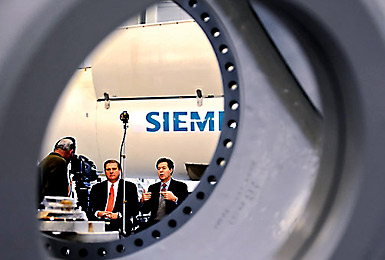Market Report: Renewable Energy Attracting Government Dollars, Private Investment
The renewable energy industry is advancing across all sectors - wind, solar, biomass, hydropower - and garnering support from government programs and private business.
March 2011

The potential benefits span the entire nation - with substantial biomass and municipal solid waste-to-energy projects in the Southeast; to the wide range of technologies in traditional Mid-Atlantic and Midwest manufacturing states; to the wind-rich Plains and Midwest states; to the West, where significant growth potential exists in harnessing solar, wind, and hydropower. Let's take a look at some of the places where this growth is occurring across the United States.
Solar: A Hot Topic
With many renewable energy projects, especially wind and solar, being outsourced to China, federal RES incentives are expected to not only keep jobs onshore, but also to encourage foreign investment in the United States.
In January 2011, President Obama signed a military authorization law that contains a "Buy American" provision for solar panels purchased by the Department of Defense. The New York Times noted that China has expanded to become the world's dominant producer of solar panels, accounting for at least half of the world's production last year, and this legislation is expected to encourage more domestic manufacturing.
German-based SolarWorld, which has received $82.2 million in renewable-energy manufacturing tax credits - the most for a solar manufacturer so far- lauded the new focus on domestically based solar energy. The firm, which operates a large production facility in Hillsboro, Oregon, recently celebrated the addition of its 1,000th worker in December 2010, the establishment of the equivalent of four factories, and the overhaul of its operations in Camarillo, California.
In February, Camarillo, California-based Power-One, Inc. - a manufacturer of devices that convert power produced from batteries and solar panels - opened a 122,000-square-foot facility in Phoenix, Arizona, which is expected to employ 350 people in the next five years, and could eventually employ 1,000 individuals. Richard Thompson, the firm's CEO and president, credited the state's "solar corridor" created by Governor Jan Brewer, as well as the potential collaboration on innovative technologies with Arizona State University, for attracting the factory, which will produce photovoltaic panels and wind inverters.
New Room for Vroom
Also in January, Vice President Joe Biden announced a new federal program to accelerate the wide-scale adoption of electric vehicles. During a tour of a Greenfield, Indiana factory run by Ener1 - a manufacturer of lithium-ion battery systems for electric vehicles, grid energy storage, and industrial electronics - the VP noted that the plan not only creates jobs, but also sparks "whole new industries that will ensure our competitiveness for years to come - like electric vehicle manufacturing."
Project Announcements
France-Based REEL USA Plans Springfield, Illinois, Manufacturing Operations
01/10/2026
ElevenLabs Expands New York City Operations
01/09/2026
Germany-Based Silesia Flavors Establishes Huntley, Illinois, Production Operations
01/08/2026
American Industrial Group Expands Posey County, Indiana, Manufacturing Operations
01/06/2026
Eurofins Lancaster Laboratories Expands Lancaster County, Pennsylvania, Research Operations
01/03/2026
Creative 3D Technologies Expands Cedar Park, Texas, Headquarters-Manufacturing Operations
01/03/2026
Most Read
-
The Workforce Bottleneck in America’s Manufacturing Revival
Q4 2025
-
Rethinking Local Governments Through Consolidation and Choice
Q3 2025
-
Data Centers in 2025: When Power Became the Gatekeeper
Q4 2025
-
Speed Built In—The Real Differentiator for 2026 Site Selection Projects
Q1 2026
-
Tariff Shockwaves Hit the Industrial Sector
Q4 2025
-
Investors Seek Shelter in Food-Focused Real Estate
Q3 2025
-
The Permit Puzzle and the Path to Groundbreaking
Q3 2025



